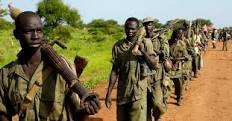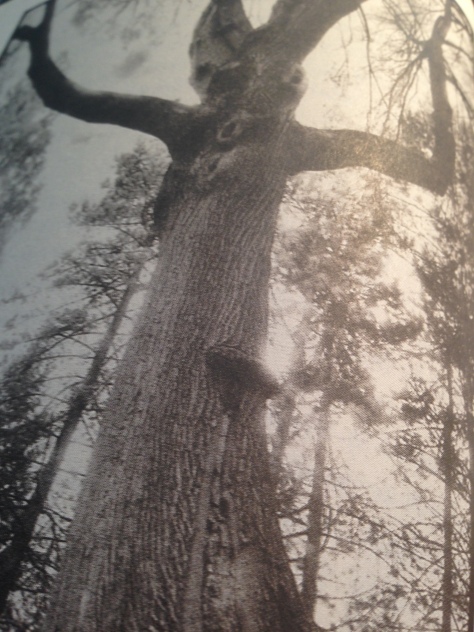Mass Rape, a Weapon of War, Traumatizes South Sudan
By NICK CUMMING-BRUCEMARCH 11, 2016

The aftermath of an attack in February on a United Nations camp for civilians in Malakal, South Sudan.
GENEVA — First they killed her husband. Then, the South Sudanese woman said, government soldiers tied her to a tree and forced her to watch as at least 10 of them raped her 15-year-old daughter.
A little more than two years after the outbreak of civil war in South Sudan, the United Nations said Friday that all parties to the conflict had committed serious and systematic violence against civilians, but it singled out forces loyal to President Salva Kiir as the worst offenders.
“Crimes against humanity and war crimes have continued into 2015, and they have been predominantly perpetrated by the government,” David Marshall, the coordinator of a United Nations assessment team, said in an interview that was videotaped in South Sudan and released Friday along with the team’s report.
The mother’s account to United Nations investigators of the rape of her daughter was among many stories cited by the United Nations as evidence that government forces and affiliated militias had used sexual violence systematically to punish and terrorize civilians. Opposition forces also committed atrocities, but to a lesser degree, the United Nations said.
“This is one of the most horrendous human rights situations in the world, with massive use of rape as an instrument of terror and weapon of war, yet it has been more or less off the international radar,” Zeid Ra’ad al-Hussein, the United Nations high commissioner for human rights, said in a statement.
Tens of thousands of people have been killed and more than two million forced to flee their homes since the start of the conflict between Mr. Kiir and his former vice president, Riek Machar, in December 2013, the United Nations said. The two sides agreed last August to set up a transitional government, but they have yet to do so.
In its 102-page report, the assessment team estimated that 10,553 civilians had died in Unity State in the 12 months that ended in November. Most appeared to have been killed deliberately, the team said.
The South Sudanese conflict intensified last year, particularly in Unity State, “where there has been a push by the government, both through the military leadership and the political leadership, to displace, kill, rape, abduct and pillage large portions of the civilian population,” Mr. Marshall said. “The consequence is that there has been much terror.”
Rights groups that have been expressing alarm about South Sudan for the past two years seized on the report to press their demands for a Security Council arms embargo and the establishment of a special war crimes court.
“While justice and an arms embargo alone will not solve this disaster, they are an essential contribution to ending the litany of appalling abuses against civilians,” said Jehanne Henry, senior researcher at Human Rights Watch. Tom Andrews, a former United States congressman who is president of United to End Genocide in Washington, said: “The time for pleading and begging South Sudan’s government to implement a peace deal is over.”
The United Nations assessment team, which visited South Sudan between October and January, recorded detailed accounts of how civilians, including women and children, had been hanged from trees, burned alive, shot and hacked to pieces with machetes. Churches, mosques and hospitals came under attack, the team said.
The team said it documented more than 1,300 cases of rape between April and September in Unity State alone, and 50 more cases from September to October. Mr. al-Hussein said the numbers “must only be a snapshot of the real total.”
Government forces carried out most of the rapes in 2015, although in some cases, criminal gangs that have flourished in South Sudan’s prevailing lawlessness were involved, the team found.
Army-affiliated militias, made up mainly of youths, raped and abducted women and girls essentially as a form of payment, under an agreement that allowed them to “do what you can and take what you can,” the team reported. The militias stole cattle and other property under the same understanding, the team said.
Some women reported being taken as “wives” by soldiers and kept for sexual slavery in barracks where they were raped repeatedly. In some instances, witnesses said, attackers killed women who resisted them or even looked them in the eye, or who showed signs of being unable to withstand continued gang rape, the United Nations reported.
In one incident, witnesses saw soldiers arguing because one of them wanted to “take” a 6-year-old girl he thought was “beautiful.” Other soldiers eventually shot the girl, the witnesses said.
The United Nations team concluded that the violence it documented required a degree of preparation that suggested there was a plan to attack the civilian population. Attacks by the armed forces loyal to Mr. Kiir largely targeted members of Mr. Machar’s Nuer community, which is consistent with the government’s political objective of weakening its opponents and communities perceived as supporting them, the team said.
Critics of the government also became targets of state violence, the United Nations team said. Human rights activists, journalists and United Nations aid agency staff members were threatened, harassed, detained and in some instances killed, the team said.
One journalist, Peter Julius Moi, was shot dead in the capital, Juba, in June, only days after Mr. Kiir threatened to retaliate against journalists who reported “against the country.”
Another journalist, Joseph Afandi, who had written articles critical of the government, was found dead near a Juba graveyard earlier this week, according to the local news media, which reported that he appeared to have been beaten and burned. Mr. Afandi had been released in mid-February after two months of detention without charge.
“There needs to be a commitment to end the violence, and then there needs to be a commitment on meaningful accountability, to investigate, prosecute and punish the perpetrators,” Mr. Marshall said in his recorded interview.
But the reality is that “that can’t happen given that the machinery of violence is basically the state,” he added. “Both the military arm and the civilian leadership are part and parcel of the problem. They are orchestrating the violence against their own civilians.”
The United Nations report came as the world body’s Human Rights Council prepared to take up the South Sudan conflict. The council’s 47 members will vote this month on a resolution that is likely to call for the United Nations to appoint a special rapporteur to monitor developments there and report back to the council, according to diplomats engaged in negotiating the text.

So here we are, hearing stories of murder and rape during war. I think that the UN should stop rapes of women and girls.It is totally uncivilized to fight a war this way. Civilians do not often have a lot to do with the causes of war and yet they regularly pay the price.
I believe that it is an crime worse than murder. Rape, especially in the third world countries, takes a woman’s life away from her and she is still alive to watch how it unravels and disappears. Little girls, if they are not killed during the rape, often have serious physical and emotional injuries. Soldiers often use rifle butts and knives to commit the rapes. Fathers and brothers are many times made to watch. There have been reports of rapes among little girls as young as six years old.
Think about your daughters and granddaughters going through an experience like this. It is horrifying. The UN needs to intervene and punish all soldiers who commit rape and murder among innocent civilians. We must focus on our similarities and remember we are all children of the universe. We are star matter. Yes, you may have decided that you have a right to participate in war but nothing ever gives you the right to injure innocent citizens. Wars don’t accomplish anything; they destroy lives and countries. They are good for nothing. This depravity is despicable in the eyes of civilized peoples.
Namaste,
Barbara


Soldiers waging war on civilians including rape and murder.

Soldiers fighting in the South Sudan war





































